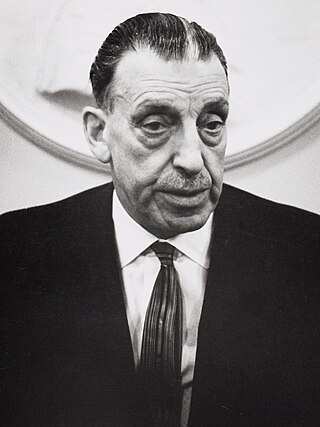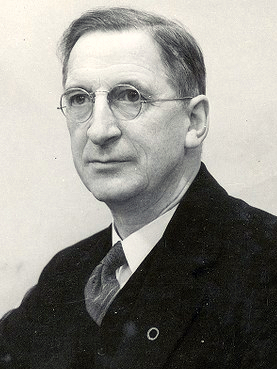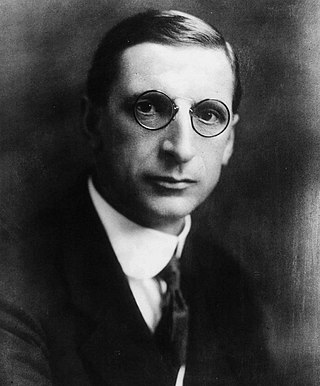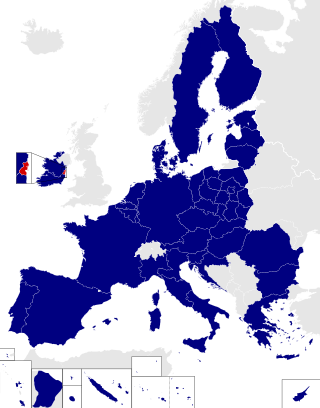
The 2002 Irish general election to the 29th Dáil was held on Friday, 17 May, just over three weeks after the dissolution of the 28th Dáil on Thursday, 25 April by President Mary McAleese, at the request of the Taoiseach, Bertie Ahern. The general election took place in 42 Dáil constituencies throughout Ireland for 166 seats in Dáil Éireann, the house of representatives of the Oireachtas, with a revision of constituencies since the last election under the Electoral (Amendment) Act 1998.

The 1981 Irish general election to the 22nd Dáil was held on Thursday, 11 June, following the dissolution of the 21st Dáil on 21 May by President Patrick Hillery on the request of Taoiseach Charles Haughey. The general election took place in 41 Dáil constituencies throughout Ireland for 166 seats in Dáil Éireann, the house of representatives of the Oireachtas. The number of seats in the Dáil was increased by 18 from 148 under the Electoral (Amendment) Act 1980.

The 1961 Irish general election to the 17th Dáil was held on Wednesday, 4 October, following the dissolution of the 16th Dáil on 15 September by President Éamon de Valera on the request of Taoiseach Seán Lemass. The general election took place in 38 Dáil constituencies throughout Ireland for 144 seats in Dáil Éireann, the house of representatives of the Oireachtas, which had been reduced in size by three seats from the previous election by the Electoral (Amendment) Act 1961. Fianna Fáil lost its majority but remained the dominant party.

The 1937 Irish general election to the 9th Dáil was held on Thursday, 1 July, following the dissolution of the 8th Dáil on 14 June by Ceann Comhairle Frank Fahy on the direction of the Executive Council. The general election took place in 34 parliamentary constituencies throughout the Irish Free State for 138 seats in Dáil Éireann. The number of seats in the Dáil was reduced by 15, from 153 to 138 seats, under the Electoral Act 1935.

The 1933 Irish general election to the 8th Dáil was held on Tuesday, 24 January following the dissolution of the 7th Dáil on 2 January by Governor-General Domhnall Ua Buachalla on the advice of the Executive Council. The general election took place in 30 parliamentary constituencies throughout the Irish Free State for 153 seats in Dáil Éireann.
Séamus Pattison was an Irish Labour Party politician who served as Leas-Cheann Comhairle of Dáil Éireann from 2002 to 2007, Ceann Comhairle of Dáil Éireann from 1997 to 2002, Minister of State for Social Welfare from 1983 to 1987 and Father of the Dáil from 1995 to 2007. He served as a Teachta Dála (TD) for the Carlow–Kilkenny constituency from 1961 to 2007. He was a Member of the European Parliament (MEP) for the Leinster constituency from 1981 to 1983.
In Ireland, direct elections by universal suffrage are used for the President, the ceremonial head of state; for Dáil Éireann, the house of representatives of the Oireachtas or parliament; for the European Parliament; and for local government. All elections use proportional representation by means of the single transferable vote (PR-STV) in constituencies returning three or more members, except that the presidential election and by-elections use the single-winner analogue of STV, elsewhere called instant-runoff voting or the alternative vote. Members of Seanad Éireann, the second house of the Oireachtas, are partly nominated, partly indirectly elected, and partly elected by graduates of particular universities.

Clare is a parliamentary constituency represented in Dáil Éireann, the lower house of the Irish parliament or Oireachtas. The constituency elects four deputies on the system of proportional representation by means of the single transferable vote (PR-STV).

Galway East is a parliamentary constituency represented in Dáil Éireann, the lower house of the Irish parliament or Oireachtas. The constituency elects 3 deputies on the system of proportional representation by means of the single transferable vote (PR-STV).

Dublin is a European Parliament constituency in Ireland. It elects 4 Members of the European Parliament (MEPs) using proportional representation by means of the single transferable vote.

East was a European Parliament constituency in Ireland. It elected 3 Members of the European Parliament (MEPs) on the electoral system of proportional representation by means of the single transferable vote (PR-STV).

North-West was a constituency of the European Parliament in Ireland between 2004 and 2014. It elected 3 Members of the European Parliament (MEPs) using the single transferable vote form of proportional representation (PR-STV).

South is a European Parliament constituency in Ireland. It elects 5 Members of the European Parliament (MEPs) using proportional representation by means of the single transferable vote.

Munster was a European Parliament constituency in Ireland between 1979 and 2004. It elected 5 Members of the European Parliament (MEPs) in the elections of 1979, 1984 and 1989 and 4 MEPs in the 1994 and 1999 elections on the electoral system of proportional representation by means of the single transferable vote (PR-STV).

Connacht–Ulster was a constituency of the European Parliament in Ireland between 1979 and 2004. Throughout its history, it elected 3 Members of the European Parliament (MEPs) using the single transferable vote (STV) system.
The 1984 European Parliament election in Ireland was the Irish component of the 1984 European Parliament election. A constitutional amendment to allow the franchise at general elections to be extended to non-Irish citizens was approved by referendum on the same day.
Ireland has 13 seats in the European Parliament. Elections are held on the electoral system of proportional representation by means of the single transferable vote (PR-STV). At the 2019 European Parliament election for the Ninth European Parliament, Members of the European Parliament (MEPs) were elected from the following constituencies:

Carlow–Kilkenny is a parliamentary constituency represented in Dáil Éireann, the lower house of the Irish parliament or Oireachtas. The constituency elects five deputies on the system of proportional representation by means of the single transferable vote (PR-STV).

Midlands–North-West is a European Parliament constituency in Ireland. It elects four Members of the European Parliament (MEPs) on the electoral system of proportional representation by means of the single transferable vote. At the 2024 European Parliament election, it will elect 5 MEPs.

The 2019 European Parliament election in Ireland is the Irish component of the 2019 European Parliament election and was held on Friday, 24 May 2019, on the same day as the 2019 local elections and a referendum easing restrictions on divorce. The election was conducted in three constituencies under the single transferable vote (STV). Thirteen MEPs were elected, but the last candidate elected in both Dublin and South did not take their seats until after Brexit on 31 January 2020.
















